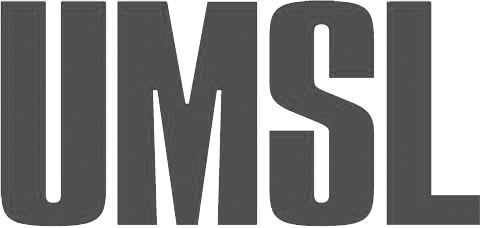Peter Hoffman, Managing Attorney for Legal Services of Eastern Missouri’s Neighborhood Vacancy Initiative (NVI)
This column was originally published in The St. Louis Post-Dispatch.
In the first of five annual sales, St. Louis City last month auctioned more than 400 properties for delinquent taxes. These included a significant number of vacant “investment” properties, but public records also show that more than 100 of the properties may very well be owner-occupied. Another auction is scheduled for Aug. 18, followed by a St. Louis County auction on Aug. 24. Last week, Jackson County, which includes Kansas City, postponed its sale citing public health concerns and the economic hardships facing taxpayers. Our region must also respond.
However, rather than postpone these auctions, we should consider a long-term approach by partnering with philanthropy to create a charitable property tax assistance fund. For a few hundred thousand dollars a year, the property tax burden of more than 100 struggling homeowners could be met. Charitable property tax relief programs are common across the country and serve a dual purpose of both benefiting vulnerable homeowners and our shared tax base.
The pandemic has created a housing crisis, the scale of which we are only beginning to grasp. Renters cannot pay rent. Homeowners and landlords cannot pay mortgages. Governments — federal, state and local — have responded with rental, utility and mortgage assistance programs. Those resources are critical, and we applaud the community leaders who acted early and decisively to prioritize that relief.
However, another critical gap remains. Like lenders and landlords, local governments are also facing the economic fallout. Tax foreclosure can be seen as one way to make-up for the lost revenue that local governments haven’t been collecting through the loss of local sales taxes. Unfortunately, without safeguards in place to protect vulnerable homeowners, tax foreclosure could exacerbate the economic and housing crises.
After the Great Recession, the number of parcels auctioned for delinquent taxes ballooned across Missouri. Tax delinquent property flooded metropolitan housing markets, driving down property values and leaving communities vulnerable to cash-rich coastal land speculators who gobbled up notoriously “affordable” properties at the expense of local developers. In St. Louis city, the under-resourced Land Reutilization Authority received a massive influx of tax-foreclosed properties, much of which the authority is still struggling to repurpose today.
Outside of Missouri, in places like Texas and Michigan, cities and counties partnered with local charities to make property tax assistance funds available for homeowners experiencing economic hardship. Many of those programs are still going strong today.
When homeowners lose their property to tax foreclosure, they lose equity that some have worked for generations to build. This transfer of wealth worsens disparities between Black and white St. Louisans. Nationally, the Black-white homeownership gap is now 30.1%, the widest it has been in 50 years. With Black Americans suffering disproportionately greater health and economic effects of the pandemic, we can expect the current recession to broaden this gap even more.
Startlingly, a new study also shows that property taxes weigh disproportionately higher on Black homeowners. As a result of higher assessed values, Black homeowners in Missouri pay 25% higher property taxes relative to the market value of their home than whites. Simply put, without relief funds available for homeowners, tax foreclosures hit Black communities harder.
For St. Louis, a charitable property tax assistance fund is easily within our reach. Compared to the millions of dollars being directed to landlords and banks through rent and mortgage relief, the amount needed locally is relatively small. Property tax assistance would leverage philanthropic dollars to produce a return on investment that would benefit the entire community. Tax assistance programs help fill local budgets, prevent an increase in vacant property, stabilize neighborhoods, and protect homeowners facing economic hardships — now and into the future. They are an investment in our shared, long-term prosperity.
***
Peter Hoffman is the Managing Attorney for Legal Services of Eastern Missouri’s Neighborhood Vacancy Initiative (NVI). Peter created NVI in April of 2018 to provide free legal assistance to nonprofit neighborhood and community organizations to help prevent vacancy and propel the grassroots rehabilitation of abandoned properties. Peter previously worked in Kansas City on similar efforts with Legal Aid of Western Missouri starting in 2010. In 2015, Peter helped create that organization’s “Adopt-a-Neighborhood Project”, a Legal Services Corporation “Pro Bono Innovation Fund” recipient bringing together urban neighborhoods with local volunteer law firms. He served as that Project’s Director until relocating to his hometown of St. Louis in 2018.
Peter received his JD/MPA from the University of Missouri-Kansas City with an emphasis in Urban, Land Use, and Environmental Law. Peter’s articles, “Bringing Self-Empowered Revitalization to Distressed Neighborhoods” published in the Journal of Affordable Housing and Community Development Law, and “Legal Services and Pro Bono Lawyers Help Neighborhoods Tackle Vacancy” published in the St. Louis Bar Journal, both spotlight the role pro bono lawyers can play in community revitalization.
***
Articles in “From the Field” represent the opinions of the author only and do not represent the views of the Community Builders Network of Metro St. Louis or the University of Missouri-St. Louis.
We invite readers to contribute to the civic conversation about community development in St. Louis by writing an op-ed for the Community Builders Exchange. Op-eds should be short (400-700 words) and provocative. If you have an idea for an op-ed, contact Jenny Connelly-Bowen at jenny@communitybuildersstl.org.






